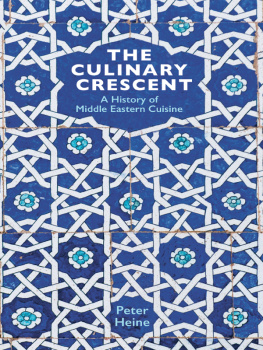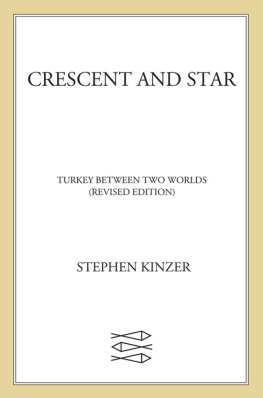E. F. Benson - Crescent and Iron Cross
Here you can read online E. F. Benson - Crescent and Iron Cross full text of the book (entire story) in english for free. Download pdf and epub, get meaning, cover and reviews about this ebook. year: 2012, publisher: Duke Classics, genre: Art. Description of the work, (preface) as well as reviews are available. Best literature library LitArk.com created for fans of good reading and offers a wide selection of genres:
Romance novel
Science fiction
Adventure
Detective
Science
History
Home and family
Prose
Art
Politics
Computer
Non-fiction
Religion
Business
Children
Humor
Choose a favorite category and find really read worthwhile books. Enjoy immersion in the world of imagination, feel the emotions of the characters or learn something new for yourself, make an fascinating discovery.
- Book:Crescent and Iron Cross
- Author:
- Publisher:Duke Classics
- Genre:
- Year:2012
- Rating:5 / 5
- Favourites:Add to favourites
- Your mark:
- 100
- 1
- 2
- 3
- 4
- 5
Crescent and Iron Cross: summary, description and annotation
We offer to read an annotation, description, summary or preface (depends on what the author of the book "Crescent and Iron Cross" wrote himself). If you haven't found the necessary information about the book — write in the comments, we will try to find it.
Though primarily remembered today as a novelist and playwright, British author E.F. Benson was also an insightful historian and critic who published several volumes of analysis pertaining to the emergence of Europe and its cultural, political, and economic legacy. Crescent and Iron Cross is a fascinating history of Turkey and its role as the crossroads of Europe and the Middle East.
Crescent and Iron Cross — read online for free the complete book (whole text) full work
Below is the text of the book, divided by pages. System saving the place of the last page read, allows you to conveniently read the book "Crescent and Iron Cross" online for free, without having to search again every time where you left off. Put a bookmark, and you can go to the page where you finished reading at any time.
Font size:
Interval:
Bookmark:

First published in 1918
ISBN 978-1-62011-822-1
Duke Classics
2012 Duke Classics and its licensors. All rights reserved.
While every effort has been used to ensure the accuracy and reliability of the information contained in this edition, Duke Classics does not assume liability or responsibility for any errors or omissions in this book. Duke Classics does not accept responsibility for loss suffered as a result of reliance upon the accuracy or currency of information contained in this book.
In compiling the following pages I have had access to certain sources ofofficial information, the nature of which I am not at liberty to specifyfurther. I have used these freely in such chapters of this book as dealwith recent and contemporary events in Turkey or in Germany inconnection with Turkey: the chapter, for instance, entitled 'Deutschlandber Allah,' is based very largely on such documents. I have tried to bediscriminating in their use, and have not, as far as I am aware, statedanything derived from them as a fact, for which I had not foundcorroborative evidence. With regard to the Armenian massacres I havedrawn largely on the testimony collected by Lord Bryce, on that broughtforward by Mr. Arnold J. Toynbee in his pamphlet The Murder of aNation, and The Murderous Tyranny of the Turks, and on the pamphletby Dr. Martin Niepage, called The Horrors of Aleppo. In the firstchapter I have based the short historical survey on the contribution ofMr. D.G. Hogarth to The Balkans (Clarendon Press, 1915). The chaptercalled 'Thy Kingdom is Divided' is in no respect at all an officialutterance, and merely represents the individual opinions and surmises ofthe author. It has, however, the official basis that the Allies havepledged themselves to remove the power of the Turk from Constantinople,and to remove out of the power of the Turk the alien peoples who havetoo long already been subject to his murderous rule. I have, in fact,but attempted to conjecture in what kind of manner that promise will befulfilled.
Fresh items of news respecting internal conditions in Turkey arecontinually coming in, and if one waited for them all, one would have towait to the end of the war before beginning to write at all on thissubject. But since such usefulness as this book may possibly have isinvolved with the necessity of its appearance before the end of the war,I set a term to the gathering of material, and, with the exception oftwo or three notes inserted later, ceased to collect it after June 1917.But up to then anything that should have been inserted in surveys andarguments, and is not, constitutes a culpable omission on my part.
E.F. BENSON
The maker of phrases plies a dangerous trade. Very often his phrase isapplicable for the moment and for the situation in view of which hecoined it, but his coin has only a temporary validity: it is good for amonth or for a year, or for whatever period during which the crisislasts, and after that it lapses again into a mere token, a thing withoutvalue and without meaning. But the phrase cannot, as in the case of amonetary coinage, at once be recalled, for it has gone broadcast overthe land, or, at any rate, it is not recalled, and it goes on beingpassed from hand to hand, its image and superscription defaced by wear,long after it has ceased to represent anything. In itself it isobsolete, but people still trade with it, and think it represents whatit represented when it came hot from the Mint. And, unfortunately, itsometimes happens that it is worse than valueless; it becomes a forgery(which it may not have been when it came into circulation), and deceivesthose who traffic with it, flattering them with an unfounded possession.
Such a phrase, which still holds currency, was once coined by LordAberdeen in the period of the Crimean War. 'Turkey is a sick man,' hesaid, and added something which gave great offence then about theadvisability of putting Turkey out of his misery. I do not pretend toquote correctly, but that was the gist of it. Nor do I challenge thetruth of Lord Aberdeen's phrase at the period when he made it. Itpossibly contained a temporary truth, a valid point of view, which, ifit had been acted on, might have saved a great deal of troubleafterwards, but it missed then, and more than misses now, the essentialand salient truth about Turkey. The phrase, unfortunately, stillcontinued to obtain credit, and nowadays it is a forgery; it ringsfalse.
For at whatever period we regard Turkey, and try to define thatmonstrous phenomenon, we can make a far truer phrase than LordAberdeen's. For Turkey is not a sick man: Turkey is a sickness. He isnot sick, nor ever has been, for he is the cancer itself, the devouringtumour that for centuries has fed on living tissue, absorbing it andkilling it. It has never had life in itself, except in so far that thepower of preying on and destroying life constitutes life, and such apower, after all, we are accustomed to call not life, but death. Turkey,like death, continues to exist and to dominate, through its function ofkilling. Life cannot kill, it is disease and death that kill, and fromthe moment that Turkey passed from being a nomadic tribe movingwestwards from the confines of Persia, it has existed only and thrivedon a process of absorption and of murder. When first the Turks came outof their Eastern fastnesses they absorbed; when they grew more or lesssettled, and by degrees the power of mere absorption, as by some failureof digestion, left them, they killed. They became a huge tumour, thatnourished itself by killing the living tissues that came in contactwith it. Now, by the amazing irony of fate, who weaves stranger dramasthan could ever be set on censored stages, for they both take hundredsof years to unravel themselves, and are of the most unedifyingcharacter, Turkey, the rodent cancer, has been infected by another withgreater organisation for devouring; the disease of Ottomanism isthreatened by a more deadly hungerer, and Prussianism has inserted itscrab-pincers into the cancer that came out of Asia. Those claws arealready deeply set, and the problem for civilised nations is first todisentangle the nippers that are cancer in a cancer, and next to depriveof all power over alien peoples the domination that has already beenallowed to exist too long.
The object of this book is the statement of the case on which alldefenders of liberty base their prosecution against Turkey itself, andagainst the Power that to-day has Turkey in its grip.
Historical surveys are apt to be tedious, but in order to understand atall adequately the case against Turkey as a ruler and controller ofsubject peoples, it is necessary to go, though briefly, into herblood-stained genealogy. There is no need to enter into ethnologicaldiscussions as to earlier history, or define the difference between theOsmanli Turks and those who were spread over Asia Minor before theadvent of the Osmanlis from the East. But it was the Osmanlis who werethe cancerous and devouring nation, and it is they who to-day rule overa vast territory (subject to Germany) of peoples alien to them byreligion and blood and all the instincts common to civilised folk. UntilGermany, 'deep patient Germany,' suddenly hoisted her colours as achampion of murder and rapine and barbarism, she the mother of art andliterature and science, there was nothing in Europe that could comparewith the anachronism of Turkey being there at all. Then, in August 1914,there was hoisted the German flag, superimposed with skulls andcross-bones, and all the insignia of piracy and highway robbery on landand on sea, and Germany showed herself an anachronism worthy to impaleher arms on the shield of the most execrable domination that has everoppressed the world since the time when the Huns under Attila raged likea forest fire across the cultivated fields of European civilisation.To-day, in the name of Kultur, a similar invasion has broken on shoresthat seemed secure, and it is no wonder that it has found its mostvaluable victim and ally in the Power that adopted the same methods ofabsorption and extermination centuries before the Hohenzollerns everstarted on their career of highway robbery. But like seeks like, andperhaps it was not wholly the fault of our astonishing diplomacy inConstantinople that Turkey, wooed like some desirable maiden, cast inher lot with the Power that by instinct and tradition most resembledher. Spiritual blood, no less than physical blood, is thicker thanwater, and Gott and Allah, hand-in-hand, pledged each other in the cupsthey had filled with the blood that poured from the wine-presses ofBelgium and of Armenia.
Font size:
Interval:
Bookmark:
Similar books «Crescent and Iron Cross»
Look at similar books to Crescent and Iron Cross. We have selected literature similar in name and meaning in the hope of providing readers with more options to find new, interesting, not yet read works.
Discussion, reviews of the book Crescent and Iron Cross and just readers' own opinions. Leave your comments, write what you think about the work, its meaning or the main characters. Specify what exactly you liked and what you didn't like, and why you think so.

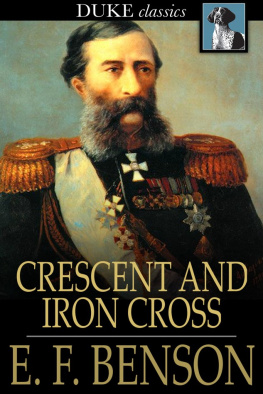
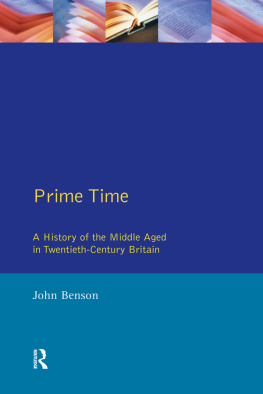

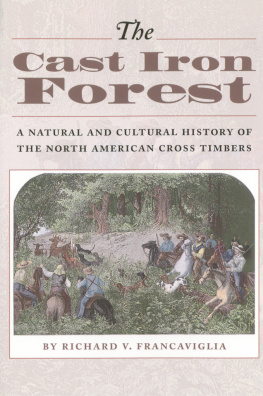
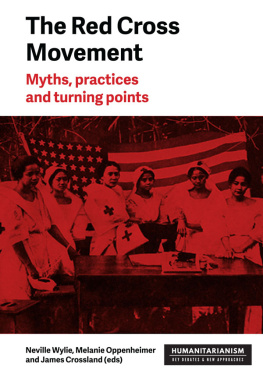
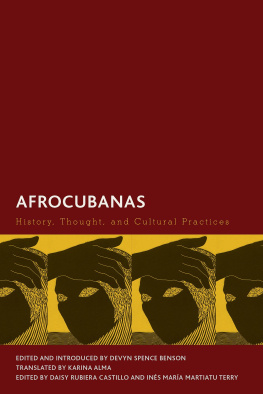
![Robert Hugh Benson [Benson - Robert Hugh Benson Collection [11 Books]](/uploads/posts/book/139831/thumbs/robert-hugh-benson-benson-robert-hugh-benson.jpg)
